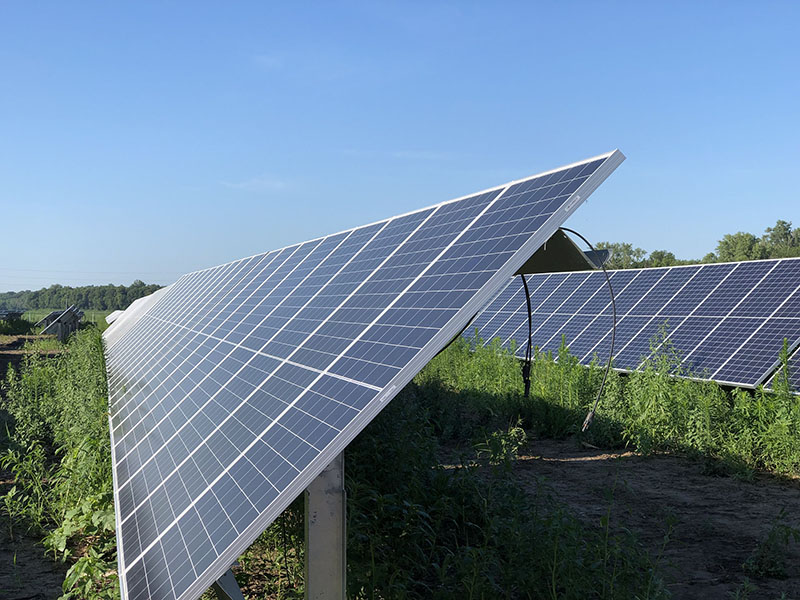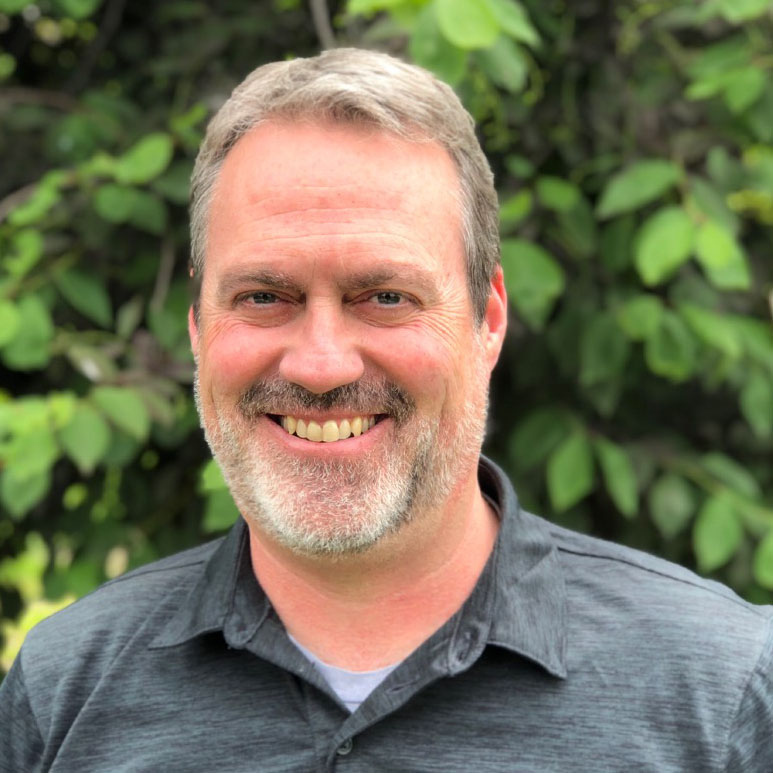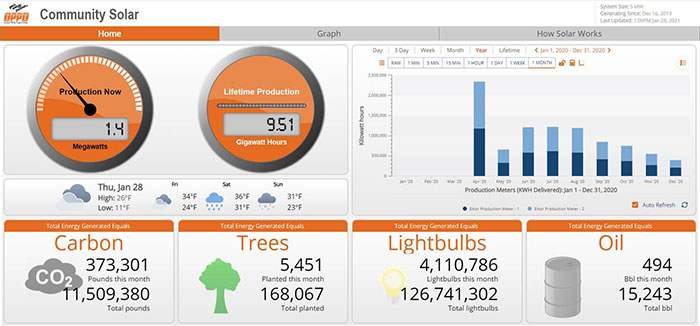Community solar program marks one year

OPPD’s community solar facility in rural Washington County passed its first-year milestone in December. With that first year complete, the project has proved to be something customers want – there continues to be a waiting list. And the utility has learned valuable lessons they can apply to future projects.
The solar array is a 5-megawatt (MW) solar energy facility that sits outside Fort Calhoun, tucked among rolling hills and trees. OPPD and NextEra Energy Resources have a 20-year power purchase agreement for the energy generated at the facility, which has more than 17,500 panels.
Year one at a glance
- Number of customer’s participating: 880 customers (averaging about 9 shares per customer)
- Hours of solar energy produced in 2020: 9,200,806 kilowatt hours
- Number of customers on waiting list: 496 residential customers
Customers can view the facility’s activity in real time on its generation dashboard on oppd.com.
The solar program has been successful for the utility, said Tricia McKnight, an OPPD product specialist.
“The program sold out all 8,400 shares within three months of launching the program,” McKnight said. “And the program has remained consistently sold out with a waiting list of customers who want more shares.”
Lessons learned
Recently, customers may have noticed that some panels were damaged at the facility. The damage, which occurred in late 2020, was due to a malfunction of some tracking equipment that dictates when the panels turn to maximize sun exposure. That equipment is covered under the manufacturer’s warranties. NextEra is working with the manufacturer through their warranty process to fix the issue. The site remains able to produce energy.
“During its short operating life, the community solar facility has illustrated the importance of equipment selection and technical specifications,” Kennedy said. “There are industry certifications and third-party analysis that ensure equipment for solar facilities is both reliable and bankable.”
One of the initial objectives in launching community solar was to use it as a testing ground for future, possible larger-scale solar facilities. It has done just that, said Courtney Kennedy, manager of OPPD’s Alternative Energy program.
Eye to the environment
Another lesson OPPD will apply to future projects is how to incorporate pollinator habitat at the sites. Kennedy said initiatives like OPPD’s Prairie in Progress are important to stakeholders, and OPPD is working to ensure future contracts include a provision that calls for pollinator habitat at project sites.
OPPD does not own the land or facility for the community solar array. They worked with NextEra to incorporate some pollinator habitat, resulting in 1.5 acres of habitat on the site.
“For the Power with Purpose utility-scale solar projects, we are working to include pollinator habitat ,” Kennedy said. “We now know that a pollinator program takes time to establish and mature. It’s something customers want to see and is good for the environment.”

Jason Kuiper joined OPPD as a communications specialist in 2015. He is a former staff writer and reporter at the Omaha World-Herald, where he covered a wide range of topics but spent the majority of his career covering crime. He is a graduate of the University of Nebraska at Omaha and has also appeared in several true crime documentary shows. In his free time he enjoys cooking, spending time with his wife and three children, and reading crime novels.
View all posts by Jason Kuiper >








